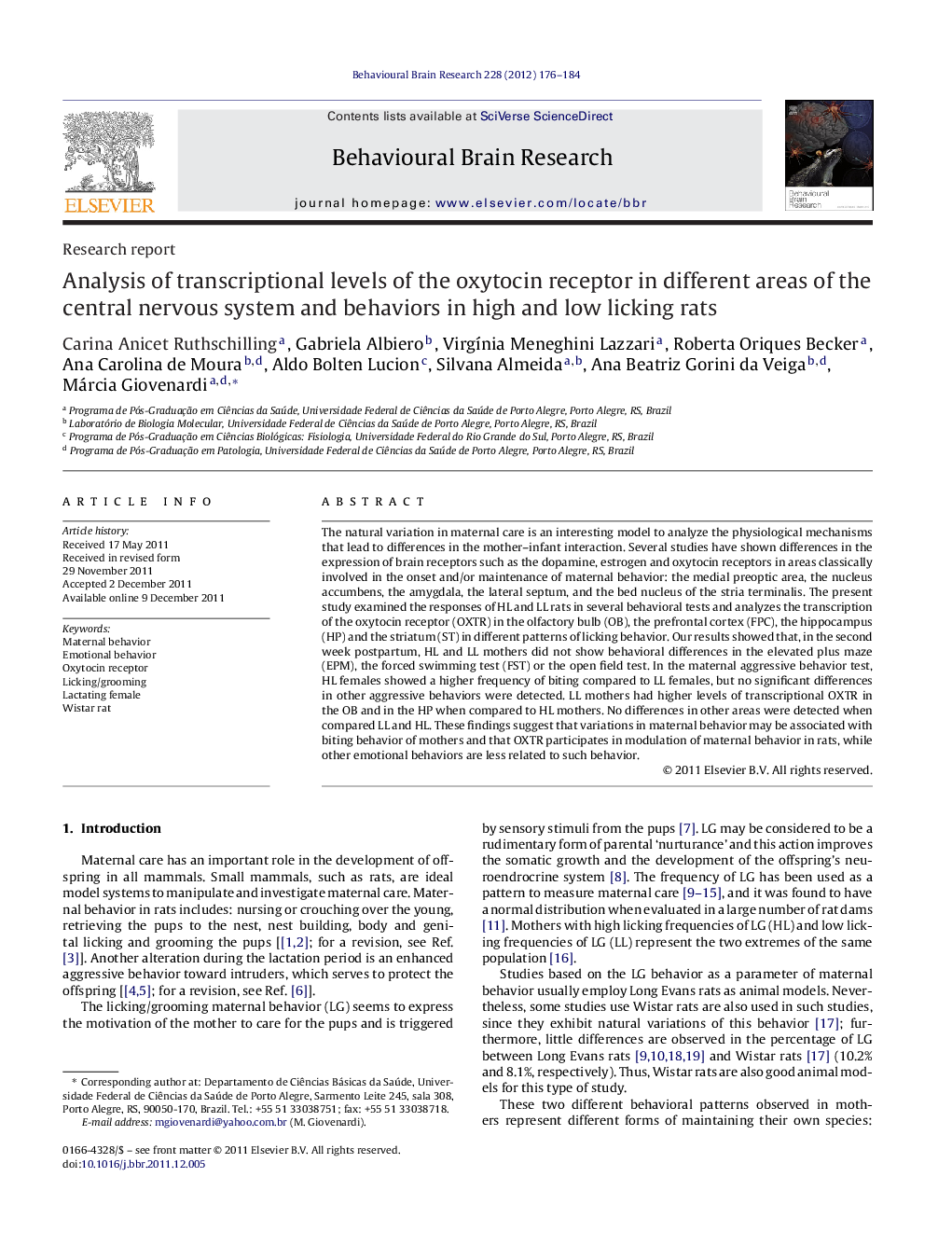| Article ID | Journal | Published Year | Pages | File Type |
|---|---|---|---|---|
| 4313555 | Behavioural Brain Research | 2012 | 9 Pages |
The natural variation in maternal care is an interesting model to analyze the physiological mechanisms that lead to differences in the mother–infant interaction. Several studies have shown differences in the expression of brain receptors such as the dopamine, estrogen and oxytocin receptors in areas classically involved in the onset and/or maintenance of maternal behavior: the medial preoptic area, the nucleus accumbens, the amygdala, the lateral septum, and the bed nucleus of the stria terminalis. The present study examined the responses of HL and LL rats in several behavioral tests and analyzes the transcription of the oxytocin receptor (OXTR) in the olfactory bulb (OB), the prefrontal cortex (FPC), the hippocampus (HP) and the striatum (ST) in different patterns of licking behavior. Our results showed that, in the second week postpartum, HL and LL mothers did not show behavioral differences in the elevated plus maze (EPM), the forced swimming test (FST) or the open field test. In the maternal aggressive behavior test, HL females showed a higher frequency of biting compared to LL females, but no significant differences in other aggressive behaviors were detected. LL mothers had higher levels of transcriptional OXTR in the OB and in the HP when compared to HL mothers. No differences in other areas were detected when compared LL and HL. These findings suggest that variations in maternal behavior may be associated with biting behavior of mothers and that OXTR participates in modulation of maternal behavior in rats, while other emotional behaviors are less related to such behavior.
► Maternal licking behavior in rats is not associated to other emotional behaviors. ► Variations in maternal behavior may be associated with biting behavior in dams. ► OXTR was highly expressed in the hippocampus and olfactory bulb of low licking dams. ► OXTR was less expressed in the hippocampus and olfactory bulb of high licking dams. ► OXTR is related to modulation of maternal behavior in rats.
